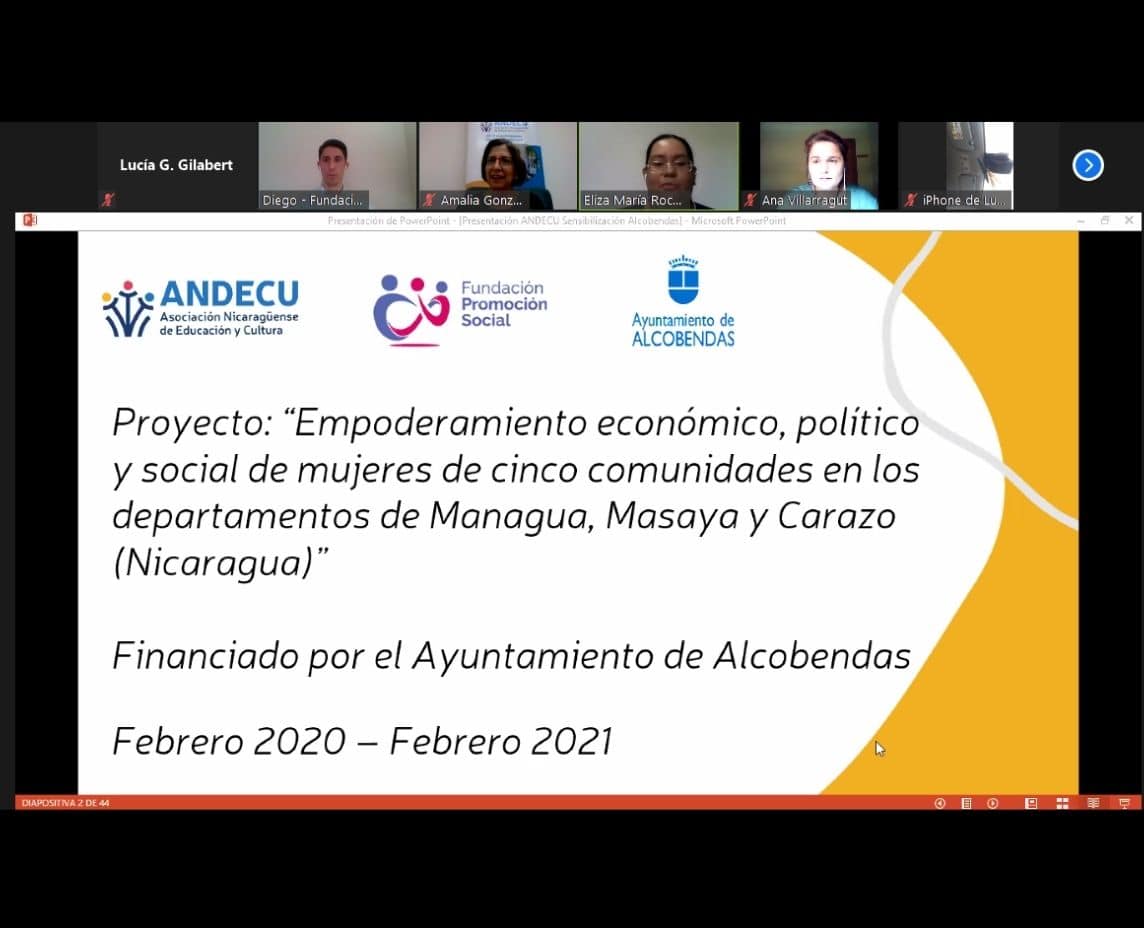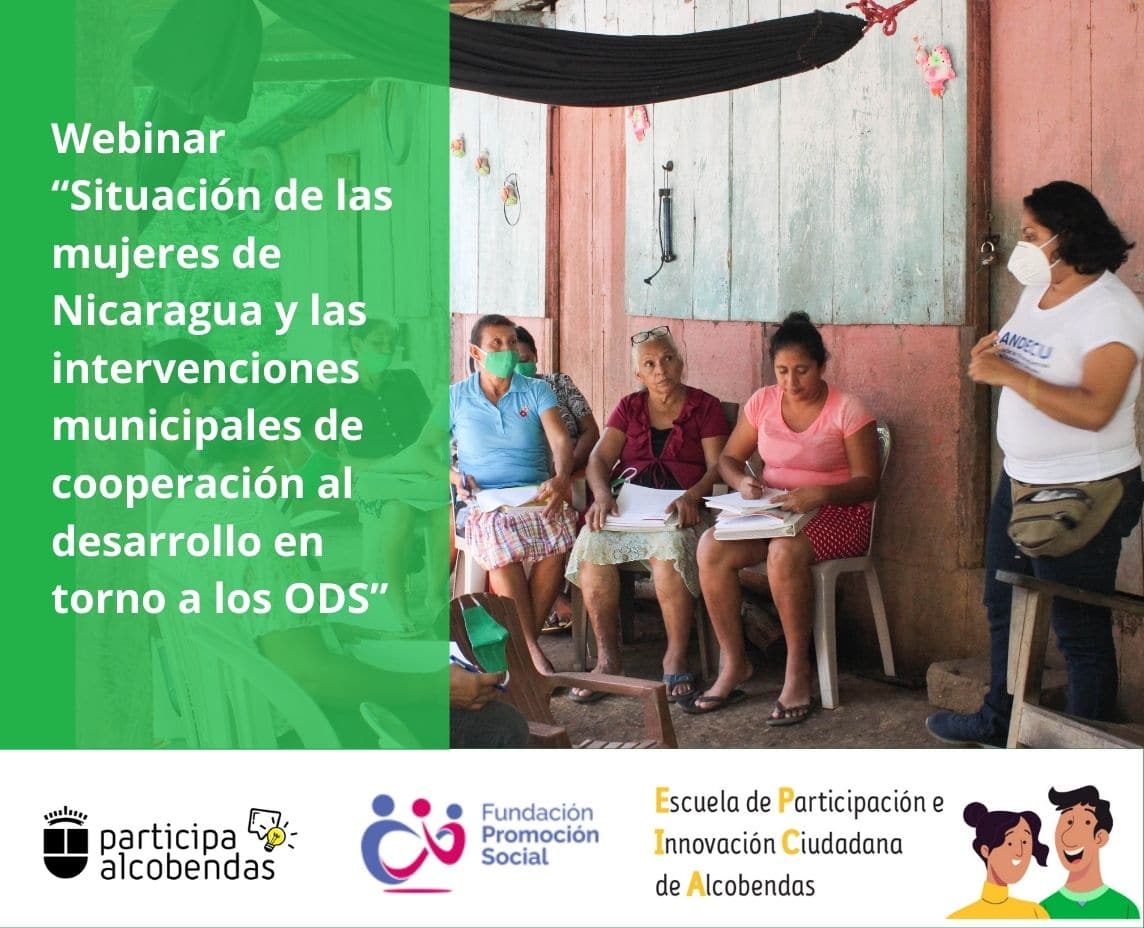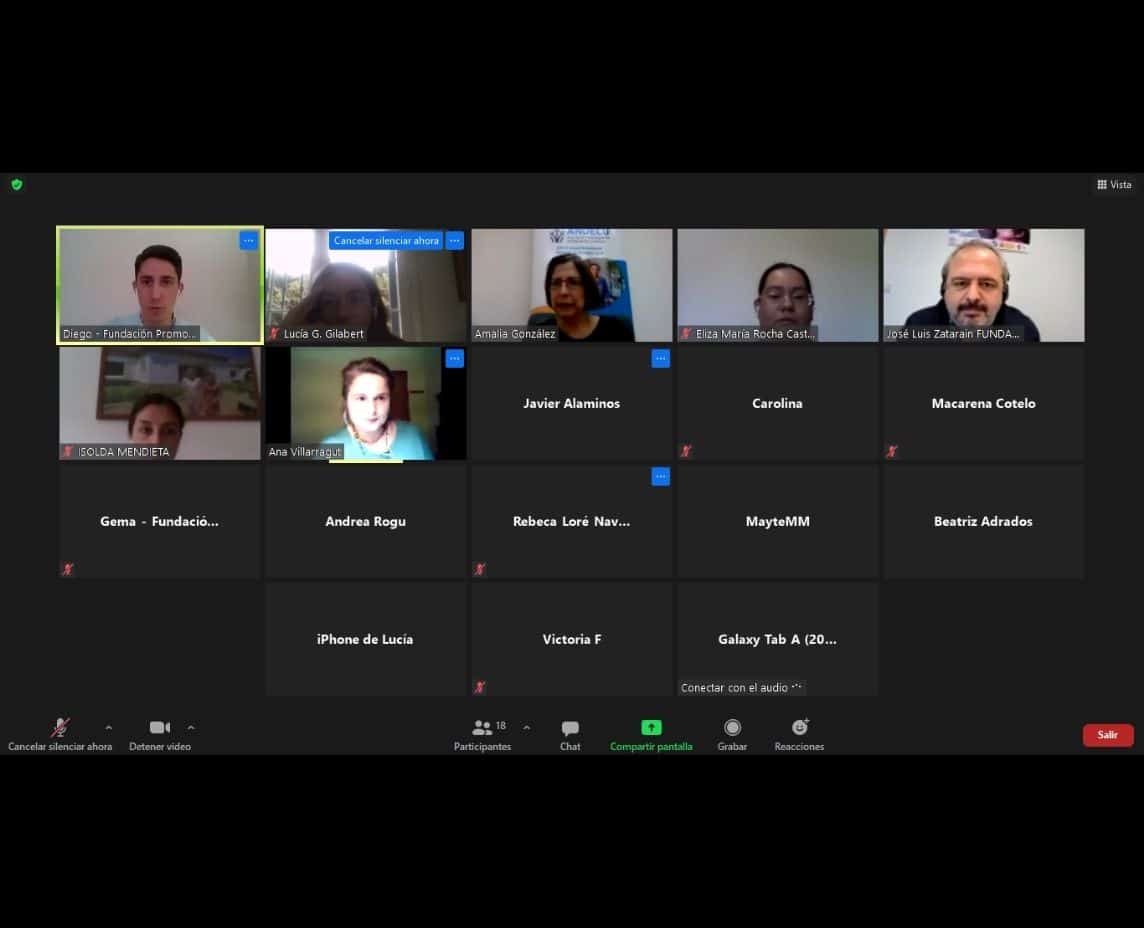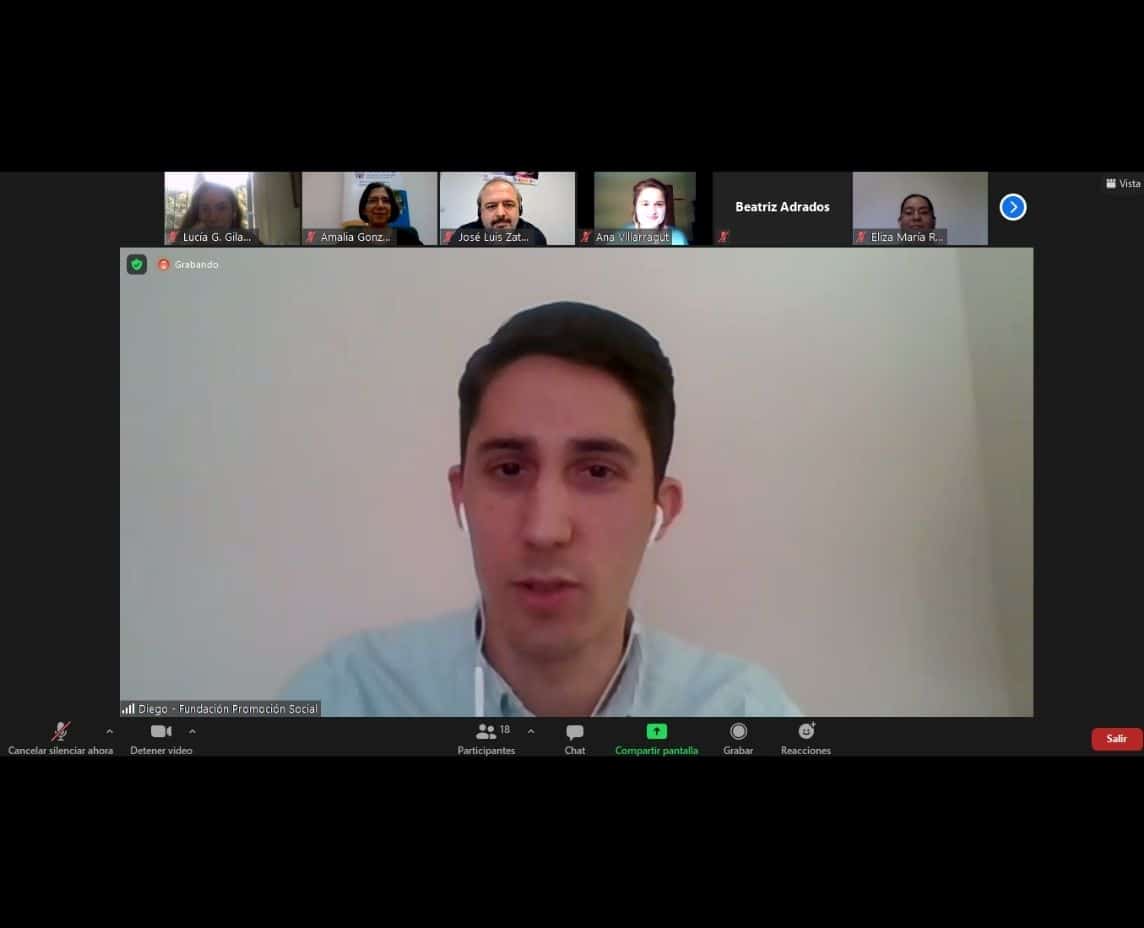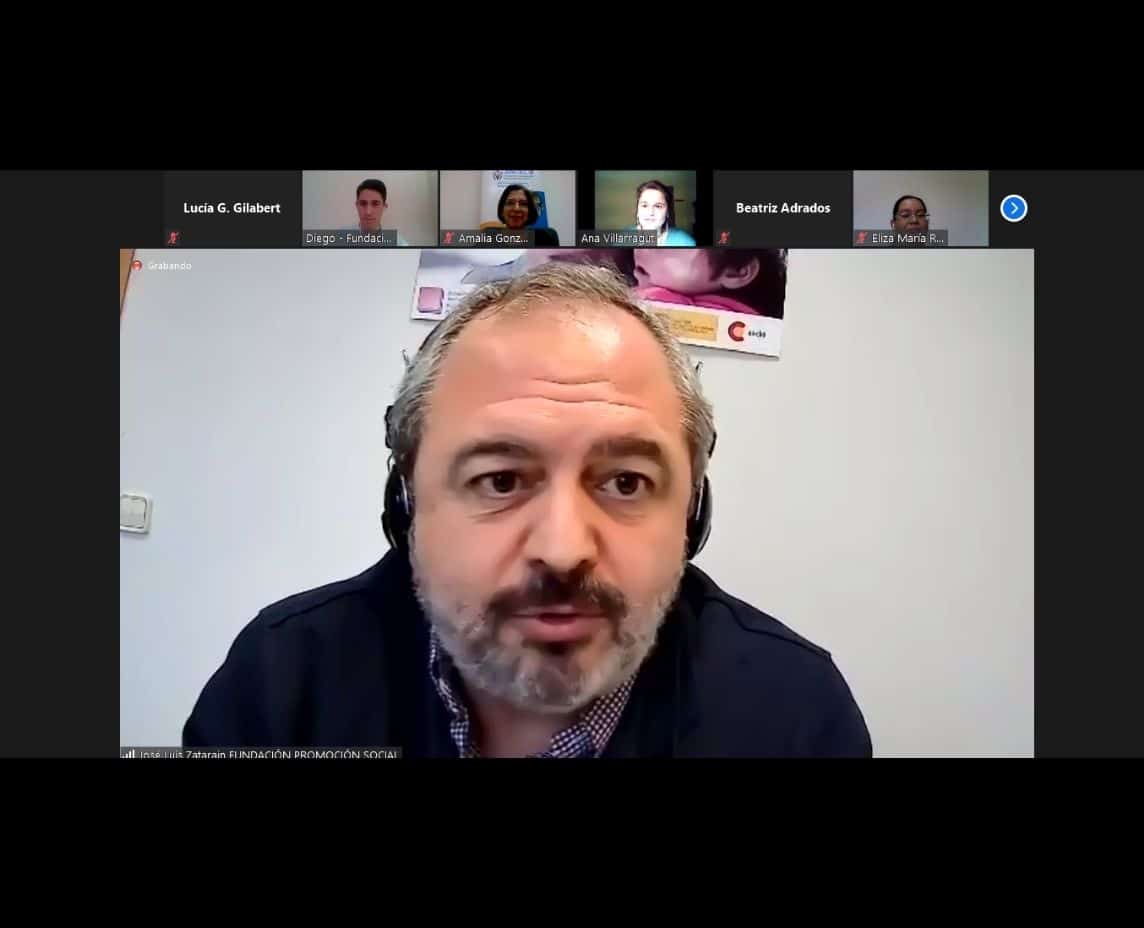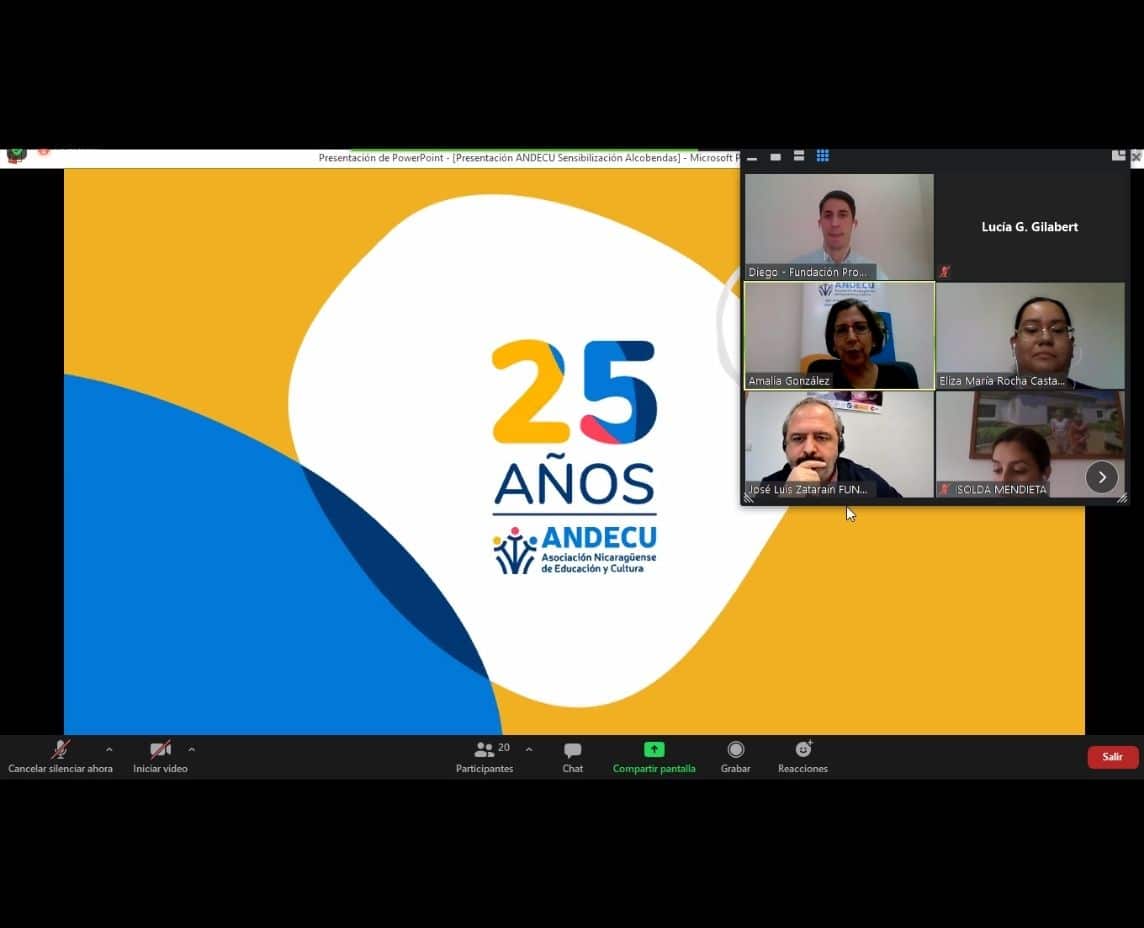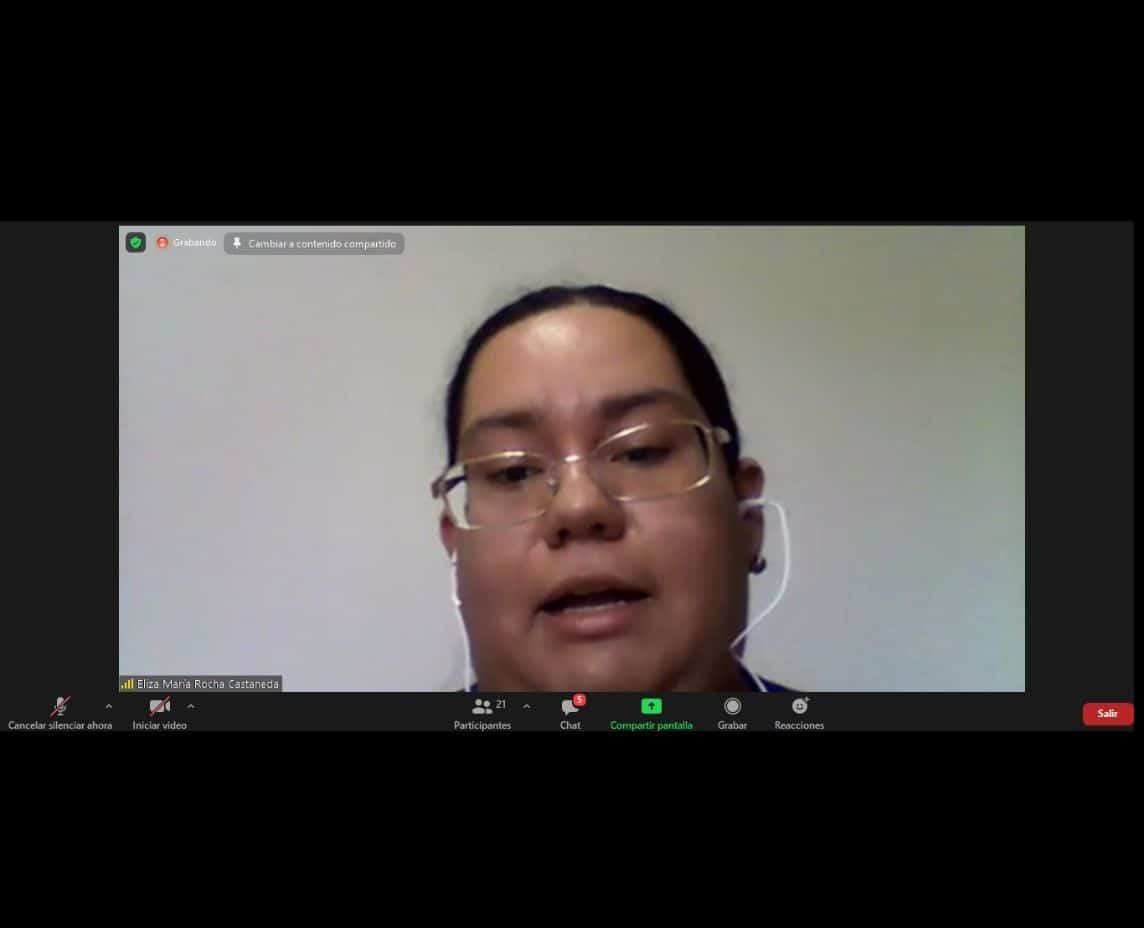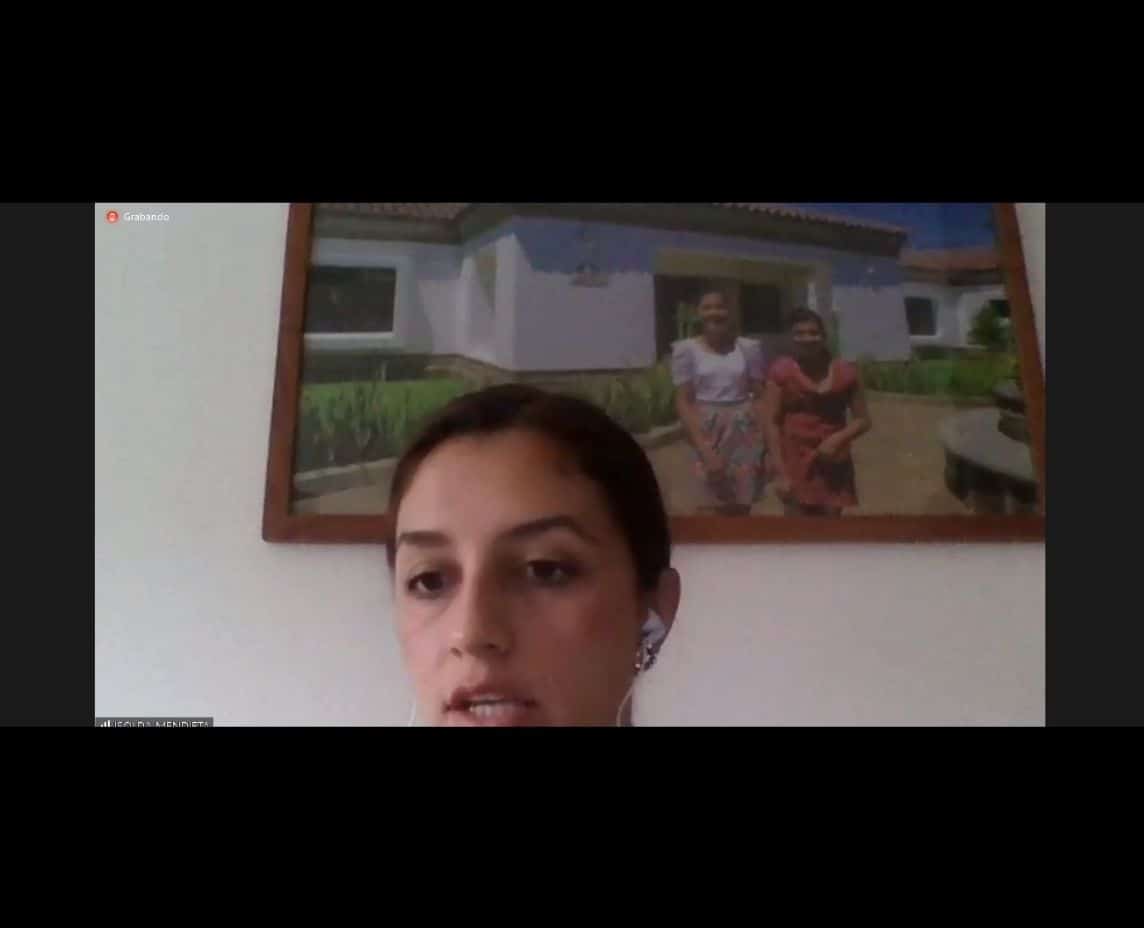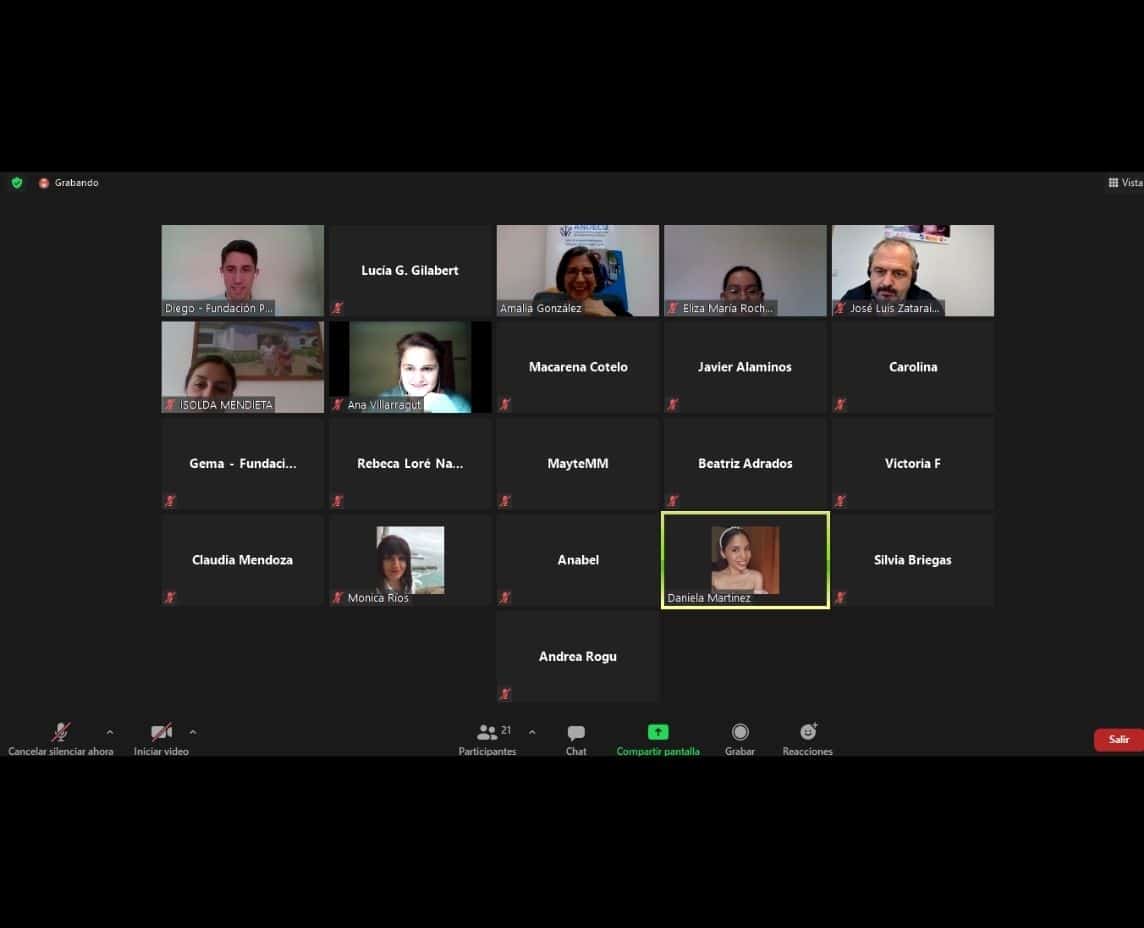Social Promotion Foundation held the webinar “The empowerment of Nicaraguan women, an antidote to the impacts of the socio-political conflict in the country”, last Friday, 29 January, from 4 to 6 pm, which was organised as part of the School of Participation and Citizen Innovation (EPICA) of the Alcobendas City Council.
The objective was to present the activities developed in the project to promote the empowerment of women in the departments of Managua, Masaya and Carazo, improving their access to employment through training, in the framework of the project of FPS in consortium with the local partner ANDECU.
Another goal was to show the socio-economic context of Nicaraguan women in which this project is developed.
The webinar began with welcoming remarks by Ana Villarragut, Technician of Development Cooperation and Citizen Participation of the City Council of Alcobendas.
Afterwards Diego Molina, Project Manager at the Foundation, took the floor and introduced the different speakers.
First José Luis Zatarain, Director of Communication of the Foundation, briefly introduced the Social Promotion Foundation and its work..
Then key staff of ANDECU from Nicaragua, Amalia González Fournier, Executive Director of ANDECU, Eliza Rocha, Coordinator of the Training of Women Entrepreneurs (FME) and Isolda Mendieta, Coordinator of the Vega Baja Educational Centre, presented the different activities of the project, the great challenges they have had to face and presented several testimonies of the rights holders.
The project has an innovative component, the training of trainers, as it prioritises the training of what they call “multipliers”, who are university students volunteers who are trained to train rural women entrepreneurs in the departments of Managua, Masaya and Carazo.
They stimulate not only an effective promotion of access to employment, but also a real empowerment, since with a rights-based approach; women are trained in what they call life skills.
The project has had to adapt to the pandemic, for which three digital platforms were set up to guarantee access to content and training, support and subsequent contact.
In order to continue in the COVID-19 context, the Zoom platform was used for the training workshops for the project’s volunteers; areas and communities where there was a minimum case of COVID-19 were chosen, and the use of masks (cloth, surgical or kn95) was mandatory during the face-to-face trainings.
The most important thing, as Amalia González Fournier has told us, is the human capital of all the people who have taken part in the project.
In the testimonies it was shown the resilience and great strength of the entrepreneur women and their ability to overcome difficulties by taking advantage of the activities that the project has provided them.
This was underlined by Eliza Rocha, who remarked how in her country, due to the difficulties they face, these women do not leave room for complaint, but rather they consider how to overcome the setbacks.
After the summer, they have had to endure the scourge of two hurricanes.
The session ended with a very participative debate with the citizens of Alcobendas, and with colleagues from other NGOs that participated in the webinar, including Energies without Frontiers, Amnesty International, and the American Institute for Social Development Foundation.
Ana Villarragut, Technician for Development Cooperation and Citizen Participation of the Alcobendas City Council, who was in charge of closing the debate, moderated it.





